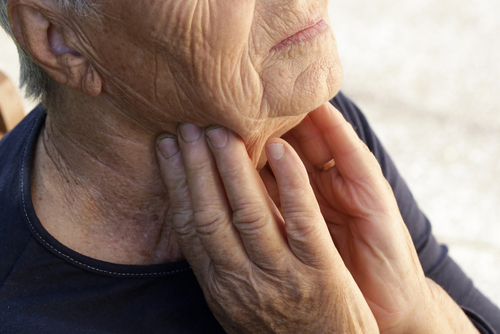
Hypothyroidism and Dementia Misdiagnosis as we age
Older people with a very underactive thyroid gland can sometimes be misdiagnosed as having dementia.
Hypothyroidism is a common yet often misunderstood condition that affects millions of people worldwide. It occurs when the thyroid gland, located in the front of your neck, doesn't produce enough thyroid hormones. These hormones play a crucial role in regulating various bodily functions, so when they're in short supply, it can lead to a range of health issues. Older people with a very underactive thyroid gland can sometimes be misdiagnosed as dementia. That’s why doctors usually order thyroid testing in people with new cognitive decline.
What causes Hypothyroidism?
1. Autoimmune Thyroiditis (Hashimoto's Disease): The most common cause of hypothyroidism is an autoimmune disorder called Hashimoto's disease. In this condition, your immune system mistakenly attacks and damages your thyroid gland, impairing its ability to produce hormones.
2. Iodine Deficiency: Your thyroid needs iodine to produce hormones. A lack of iodine in your diet can lead to hypothyroidism, although this is less common in areas where iodine is routinely added to table salt.
3. Medical Treatments: Certain medical treatments, such as radiation therapy and surgical removal of the thyroid gland, can result in hypothyroidism.
4. Medications: Some medications, like lithium and amiodarone, can interfere with thyroid hormone production.
Common Symptoms of Hypothyroidism
1. Fatigue: Feeling unusually tired, even after a full night's sleep, is a common symptom of hypothyroidism.
2. Weight Gain: Hypothyroidism can slow down your metabolism, making it easier to gain weight and harder to lose it.
3. Cold Sensitivity: Feeling excessively cold, especially in your hands and feet, is a frequent complaint among those with hypothyroidism.
4. Hair and Skin Changes: Dry, brittle hair and pale, dry skin are often observed.
5. Muscle Weakness: Vague joint pain is a classic hypothyroidism symptom. Many people experience general muscle aches, particularly in large muscle groups like those in the legs.
6. Constipation: An underactive thyroid can slow down your digestive system, leading to constipation.
7. Psychiatric Problems: Many individuals with hypothyroidism experience mood changes, including depression and irritability. Some older adults also develop psychosis with delusional behaviour or hallucinations.
8. A Sudden Spike in Cholesterol: High cholesterol is sometimes the only evidence of an underactive thyroid in an older person. Because this sign may stand alone, high cholesterol warrants a thyroid evaluation.
9. Weak Heart Health: Reduced blood volume, weaker contractions of the heart muscle, and a slower heart rate—all caused by low thyroid hormone levels—can contribute to heart failure, when your heart can't pump out blood as effectively as it should The ineffective pumping may cause subtle symptoms such as feeling less energetic or just walking more slowly. In more advanced stages, fluid can back up in the lungs and legs causing shortness of breath and leg swelling.
Diagnosis and Treatment:
If you suspect you or someone you care for have hypothyroidism or are experiencing symptoms, it's essential to seek medical advice. At Centric Health, our doctors can perform blood tests to measure your thyroid hormone levels. Once diagnosed, treatment typically involves thyroid hormone replacement therapy, such as levothyroxine, to restore hormone levels to normal. While medication is the primary treatment for hypothyroidism, several lifestyle changes can help manage the condition and improve your overall well-being. These include having a balanced diet, regular exercise and frequent check-ups, especially if you’re over the age of 50.
Hypothyroidism is a manageable condition, but it requires ongoing care and attention. By understanding its causes, recognising its symptoms, seeking proper diagnosis and adhering to treatment, individuals with hypothyroidism can lead healthy and fulfilling lives. If you suspect you or an elderly relative have hypothyroidism, get in touch with us for guidance and support in managing your condition.
Note: The content in this blog is for informational and educational purposes only and is not intended as a substitute for professional medical advice, diagnosis, or treatment. Always seek the advice of your doctor or qualified healthcare provider with any questions you may have regarding a medical condition or treatment.


